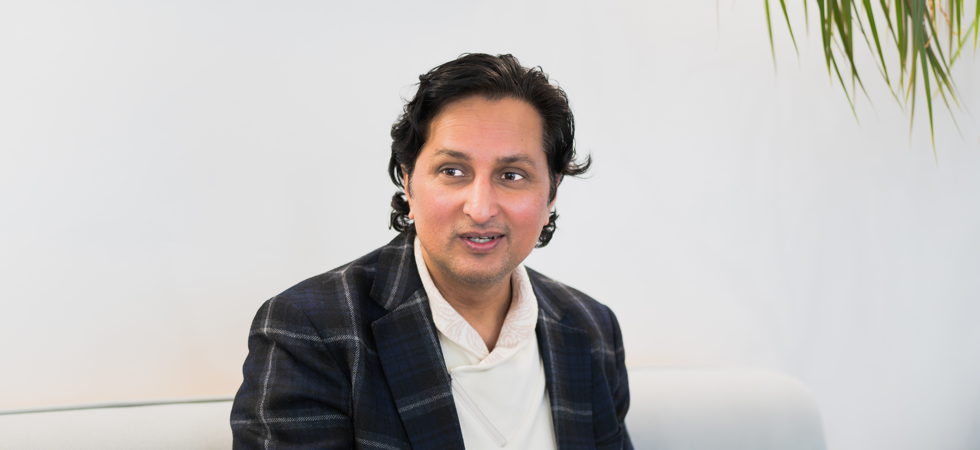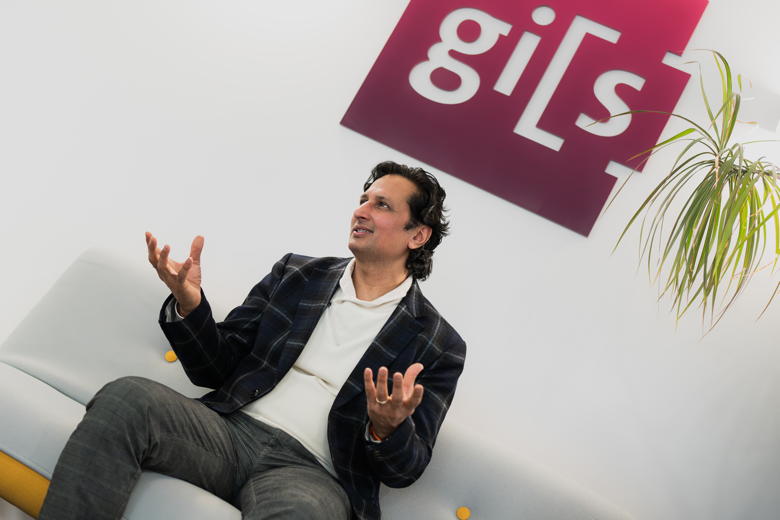Navigating Leadership, Culture, and Innovation in IT: Exclusive Interview with Sidharth Yadav

Kästorf, Wolfsburg: The VWGIS office is located within sight of the Volkswagen plant. Here we meet Sidharth Yadav, who has been the Group’s new CEO since November 2024.
After working for VWGIS in India and Germany, Sidharth Yadav took over the management of VWGIS as CEO, together with Dirk Schäfer as COO and Andreas Flügger as CFO in November 2024. Together, they are uniting Volkswagen Group IT Solutions with its subsidiaries in India and Portugal to form a joint GIS Group.
t3n: Mr. Yadav, you’re definitely not a new face within the VWGIS cosmos.
S. Yadav: My career at Volkswagen began in 2008 in Pune, India, where I was the CIO responsible for setting up the IT infrastructure for a new manufacturing plant. This involved setting up data centers, as cloud computing was not yet widespread.
During this period, we started collaborating with our German counterparts. Initially, we focused on leveraging Indian IT resources for local needs, but once that proved successful, we expanded our approach to integrate with Germany.
Later, I moved to Germany as CIO for the Europe region, working closely with colleagues from the UK, Russia at that time, and across Germany. After returning to India in 2014, I took over as CIO for the Asia-Pacific region, covering Japan, Korea, Australia, Taiwan, and the Middle East. These roles gave me deep insight into different corporate cultures and working methodologies.
t3n: There are many opportunities and challenges on the way to a joint GIS Group. What are some of the key lessons you’ve learned from managing across different cultures?
S. Yadav: The most important lesson I’ve learned is that there’s no universal „right” or „wrong“ – just different ways of working. The key is to understand these differences. For example, German professionals tend to be more structured and direct, while Indian teams can be more reserved. If a German manager is too assertive, an Indian colleague might retreat instead of engaging. Once you understand these nuances, working together becomes much smoother.
t3n: How do you incorporate these cross-cultural learnings into your leadership approach? S. Yadav: The GIS Group consists of three entities: GIS Germany, Digital Solutions Portugal, and ITS India, with around 5,100 employees overall. Our goal is to build a unified culture that acknowledges national differences while promoting a shared professional identity.
Therefore, we focus on five core values, which we call the „5 P’s“:
1. Partners: How do we create value and enhance our customer relationships?
2. Purpose: As an insourcing partner for Volkswagen, we must uphold extreme ownership and accountability.
3. Product: We are a technology-driven company, and we aim to stay at the forefront of innovation.
4. Passion: Our team members are deeply passionate about technology, and we encourage curiosity and continuous learning.
5. People: At the end of the day, technology is about people, and we strive to create winning teams.
This forms the foundation of what we call a „cool“ culture: Curiosity, obsession with customers, extreme ownership, and technology leadership.

Sidharth Yadav in the VWGIS office in Wolfsburg in January 2025. (Image:
t3n)
t3n: We’d love to go a bit deeper into the vision for this new group that emerges with you on top and what the mission and strategic goals look like.
S. Yadav: Our mission is clear: We want to be the most innovative product and solution provider for the Volkswagen Group. To achieve this, we’ve outlined five strategic pillars:
1. IT excellence: We must be at the forefront of technological expertise.
2. Business value: Every project should contribute measurable value to our business partners.
3. Optimal resourcing: We leverage Germany (onsite), Portugal (nearshore), and India (offshore) to optimize efficiency.
4. Innovation and product development: We invest in R&D and aim to launch eight new MVPs annually.
5. Talent growth: Beyond being a great place to work, we want to be the best place for professional growth.
t3n: How do you plan to ensure seamless collaboration across your multinational teams?
S. Yadav: We already have strong collaborations among Germany, Portugal, and India. But we also focus on structuring our work efficiently.
One key initiative is our Center of Excellence (COE) program, where we create virtual communities of technologists in specific domains. For example, we bring together Java, SAP, and Microsoft developers from all three entities into specialized knowledge hubs. From these communities, we identify top talents to form an Army of Experts (AOE) who drive technology roadmaps and innovation.
Our goal is for teams to see themselves as part of a unified tech ecosystem rather than isolated entities. This helps knowledge-sharing and strengthens our internal expertise.
t3n: I also came across your concept of zero-distance leadership. Can you elaborate on that?
S. Yadav: Zero-distance leadership is a concept I introduced last year. To quote a very famous non-human being: „Do or do not; there is no try“. It’s inspired by the philosophy that there should be no gap between what we commit to and what we deliver. We apply this principle across the five dimensions mentioned earlier: Zero distance to partners, to our purpose, to our products, to our passion, and to our people.
For instance, we implemented a Product Maturity Model, where every product team is advised to introduce one innovation per quarter. Additionally, we launched „Challenge us“, an initiative where business stakeholders present their biggest pain points, and our teams find innovative solutions. These measures ensure that we stay close to the business challenges we are solving.
t3n: What advice would you give to young professionals or graduates aspiring to work with you?
S. Yadav: My biggest advice is to become an expert in your domain. Whether it’s software development, AI, or cybersecurity, technical depth and expertise matter. Additionally, it’s crucial to understand the business context. Technology is not just about writing code, it’s about solving real problems. Shifting the mindset from „delivering IT projects“ to „building IT products“ drives business value.
We actively recruit university graduates, especially in India, and train them for six months before integrating them into our projects. We also focus on AI upskilling, having launched an AI academy to prepare our teams for the future of tech.
t3n: In 2023, you completed a so-called Ultraman – a particularly long version of the triathlon exceeding the distances of an Ironman by far. What insights were you able to derive for your work?
S. Yadav: The key lesson from endurance sports is that you don’t just aim for the finish line – you focus on making it through the next hour, the next milestone, with the final goal always in mind. The analogy here is: When running a long event, you have to plan every hour because your body’s energy reserves only last for about an hour. After that, you must replenish with carbohydrates, salts, and other nutrients so you can continue for the next hour.
In business, we apply the same logic. We have quarterly sprints to fuel our long-term vision. If we execute well in the short term, we position ourselves for sustainable success in the long run.
t3n: Thank you for sharing your insights – it’s been a very insightful talk!
S. Yadav: Thank you! I appreciate the opportunity to share our journey.
Find out more about the VWGIS Group on the BrandHub of t3n.
Discover the VWGIS Themenspecial now